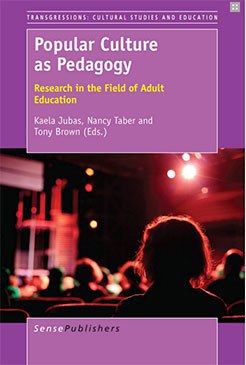Popular fiction can be a valuable learning tool for teenagers
 Teen heroines
Teen heroines
Tue, 27 Oct 2015 13:19:00 GMT
“...supernatural fantasies and dystopian dramas are highly educational too, especially for girls coming to terms with womanhood...”
 MILLIONS have been entertained by the exploits of the fictional teen heroines of sagas such as The Hunger Games, Divergent, Buffy the Vampire Slayer and Twilight. But these supernatural fantasies and dystopian dramas are highly educational too, especially for girls coming to terms with womanhood.
MILLIONS have been entertained by the exploits of the fictional teen heroines of sagas such as The Hunger Games, Divergent, Buffy the Vampire Slayer and Twilight. But these supernatural fantasies and dystopian dramas are highly educational too, especially for girls coming to terms with womanhood.
That is an argument made by the University of Huddersfield’s Professor Christine Jarvis (pictured right), who has gained a global reputation for her advocacy of popular fiction as a valuable learning tool. Her latest contribution to the field is a chapter in a new book whose authors explore the educational potential of books, films and TV shows ranging from Dr Who to The Lego Movie.
“We have learned from stories as long as we have been human,” says Professor Jarvis, who is the University’s Pro Vice-Chancellor for Teaching and Learning. Her background is in adult education and it was in this environment that she developed her fascination for the popular romances that her female students enjoyed reading. It led to a doctoral thesis, in which she explored responses to fiction and how readers learned from it.
 When popular romance for teens was superseded by supernatural stories such as the Point Horror series, Professor Jarvis began to study this new wave, although, she says: “When I looked at these fictions, what you find is romance but with a bit of supernatural stuff thrown in!”
When popular romance for teens was superseded by supernatural stories such as the Point Horror series, Professor Jarvis began to study this new wave, although, she says: “When I looked at these fictions, what you find is romance but with a bit of supernatural stuff thrown in!”
The latest output of her research is a chapter entitled How to be a Woman: Models of Masochism and Sacrifice in Young Adult Fiction. It appears in the book Popular Culture as Pedagogy, which is edited by experts in the field based in Canada and Australia. One of them is Kaela Jubas (pictured left), who is Associate Professor in Adult Learning at the University of Calgary. She has twice visited the University of Huddersfield to give talks and Professor Jarvis has paid a return visit to the Canadian university.
In her contribution to the new book, Professor Jarvis considers the “life-threatening trials” faced by post-feminist heroines and how “young adult popular fictions operate as forms of pedagogy for young women by offering them particular models of maturity and womanhood”.
“I explore the recurrence and reformulation of a persistent pattern of behaviour in which heroines engage in risky and/or masochistic behaviours for which they are emotionally rewarded,” she adds.
 Professor Jarvis considers a wide range of fiction, but focusses on two 1998 episodes of Buffy and on Stephanie Meyer’s Twilight Saga – especially Breaking Dawn from 2008 – and its heroine Bella.
Professor Jarvis considers a wide range of fiction, but focusses on two 1998 episodes of Buffy and on Stephanie Meyer’s Twilight Saga – especially Breaking Dawn from 2008 – and its heroine Bella.
 “It is fascinating that Buffy was hailed by many as a feminist icon in 1990s, but almost two decades later we seem to have reverted to something that wouldn’t be that inappropriate in the 1950s, with heroines who were constantly falling into danger in order to be rescued!” said Professor Jarvis, referring specifically to the Twilight Saga.
“It is fascinating that Buffy was hailed by many as a feminist icon in 1990s, but almost two decades later we seem to have reverted to something that wouldn’t be that inappropriate in the 1950s, with heroines who were constantly falling into danger in order to be rescued!” said Professor Jarvis, referring specifically to the Twilight Saga.
Her chapter in the new book concludes with an analysis of how education, via books, film and TV, can take place outside as well as inside the classroom.
Professor Jarvis writes that: “Adult educators teaching those who work with young adults (for example, teachers or youth workers) may find it useful to explore these texts as ways of helping these professionals consider questions of gender, adulthood and identity, and the interface between these and media representations of womanhood. Such professionals may well want to go on and use these texts themselves as the basis for discussion with the young adults with whom they work. Adult educators may also find these texts to be a rich source of material for introducing and discussing a range of challenging concepts, such as motherhood, domestic abuse, self-harm, gender and power, and the relationship between agency and sacrifice.”







